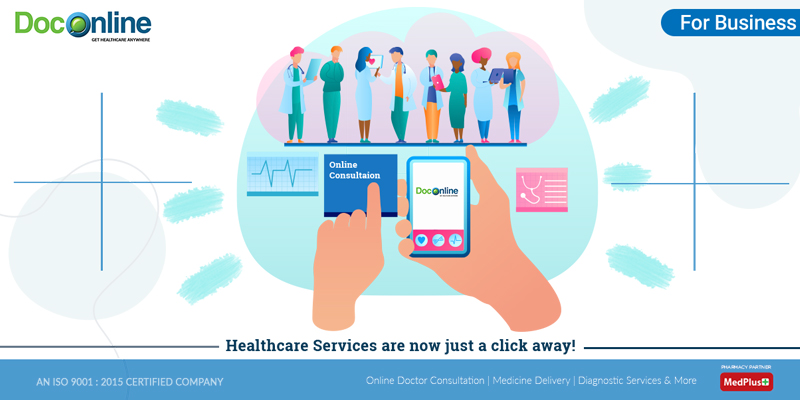Discover the Benefits of Subscription Based Healthcare for Affordable Medical Care
Wiki Article
The Surge of Subscription-Based Health Care and Its Effect On Client Care
As health care advances, the subscription-based version is obtaining traction, assuring to change patient care by offering predictability and ease of access. The capacity for these designs to reshape medical care distribution increases pressing concerns about their long-term sustainability and inclusivity. Are these registration solutions the future of healthcare, or do they risk leaving susceptible populations behind?Recognizing Membership Health Care Versions
Comprehending the idea of subscription health care designs involves analyzing a transformative strategy to clinical solutions that emphasizes cost and access. These designs, typically described as direct health care (DPC) or attendant medicine, have become ingenious choices to conventional fee-for-service health care systems. Subscription health care enables individuals to pay a set monthly or yearly fee for a specified set of medical services, which might consist of endless office sees, regular examinations, and basic laboratory examinations, without the need for standard insurance coverage payment.The structure of registration health care models is developed to improve person care by getting rid of third-party payers and complex billing codes, therefore reducing management burdens. Medical care suppliers can concentrate extra on patient care, promoting more powerful patient-provider connections. This design additionally promotes preventative care by encouraging regular check outs, as the monetary obstacle of per-visit fees is eliminated.
The membership model typically equips doctor to take care of smaller sized person panels, permitting even more individualized treatment. It lines up monetary rewards with client wellness end results, as suppliers are inspired to maintain individual contentment and well-being. Overall, understanding subscription healthcare versions calls for acknowledging their prospective to reshape how treatment is supplied and accessed.
Advantages for Suppliers and individuals

With a constant income stream, healthcare experts can dedicate even more time to each patient, leading to a more detailed and personalized care experience. The focus on precautionary treatment within membership plans can lead to better person results and lowered long-lasting medical care expenses.
Worries and challenges
While subscription-based medical care versions present various benefits, they additionally come with a collection of challenges and worries that must be attended to. Initially, availability continues to be a considerable concern, as these designs often target individuals that can afford monthly charges, possibly excluding low-income populations. This elevates moral inquiries concerning fair accessibility to health care services. Additionally, the different nature of membership strategies can bring about confusion amongst patients regarding protection specifics, potentially leading to unmet assumptions or inadequate care.Financial sustainability of subscription-based designs is another issue. Service providers must balance the set revenue from registrations with the variable expenses of medical care services, which may rise and fall as a result of unforeseen clinical requirements. This can develop pressure to restrict solutions or boost charges, possibly impacting person satisfaction and care top quality.
In addition, regulative oversight of subscription-based medical have a peek at this site care versions is still developing. Attending to these obstacles is crucial for the fair and effective application of subscription-based medical care.
Impact on Patient-Doctor Relationships
One significant effect of subscription-based medical care versions on patient-doctor connections is the possibility for boosted continuity and customized treatment. By taking on a subscription version, physicians can handle a smaller client panel, enabling even more info here more committed time with each person. This raised schedule cultivates a much deeper understanding of a person's case history, way of living, and choices, making it possible for more customized therapy plans and treatments.
However, it is very important to acknowledge that while subscription-based models might benefit those who can afford them, they could unintentionally widen healthcare disparities. Patients who are unable to take part in these models could experience reduced access to individualized care, possibly influencing their connections with doctor. Hence, while the subscription model uses promising advantages for patient-doctor relationships, it also positions challenges that require to be addressed to make certain equitable medical care gain access to.
Future of Medical Care Accessibility

The function of technology can not be overlooked in this improvement. Telemedicine systems and digital wellness records help with smooth communication between patients and health care service providers, check my blog breaking down logistical and geographical obstacles. Additionally, developments in expert system and data analytics can even more personalize treatment by anticipating person demands and optimizing therapy strategies.
Nevertheless, the future of medical care accessibility also presents obstacles, such as making sure equity throughout different socio-economic groups. Policymakers and doctor must collaborate to link the electronic divide, making sure that subscription-based designs stay comprehensive and inexpensive. As these systems mature, they hold the assurance of making medical care a lot more obtainable, effective, and patient-centric.
Conclusion
Subscription-based medical care designs are improving client care by providing a secure cost framework and enhancing ease of access. These models enhance patient-provider partnerships with personalized treatment and routine gos to, stressing preventative health. In spite of these benefits, challenges such as availability problems for low-income populations and the demand for fair medical care services linger. The rise of subscription-based healthcare urges proactive individual involvement, which has the potential to enhance patient outcomes and contentment, signaling a transformative change in healthcare shipment.As medical care develops, the subscription-based model is obtaining grip, assuring to change individual care by offering predictability and accessibility.Subscription-based medical care versions use unique benefits for both people and suppliers, improving the total healthcare experience.As medical care systems progress, the future of health care gain access to frequently pivots on the assimilation of cutting-edge designs and technologies.Subscription-based healthcare models are improving individual care by supplying a steady cost framework and improving accessibility. The surge of subscription-based health care encourages aggressive patient involvement, which has the prospective to improve patient results and contentment, signifying a transformative shift in health care delivery.
Report this wiki page